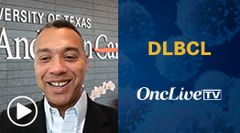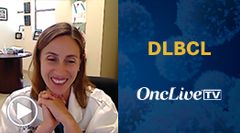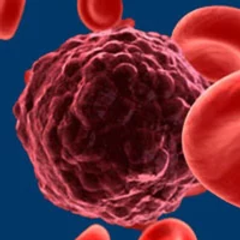
Dr. Xavier on Recent Updates in DLBCL
Marin F. Xavier, MD, discusses recent updates in diffuse large B-cell lymphoma based on data from the 2021 ASCO Annual Meeting.
Marin F. Xavier, MD, hematologist and oncologist, Scripps MD Anderson Cancer Center, discusses recent updates in diffuse large B-cell lymphoma (DLBCL) based on data from the
During the meeting, findings from the long-term analysis of the phase 2 L-MIND trial (NCT02399085) were presented, Xavier says. The results continued to demonstrate that treatment with tafasitamab-cxix (Monjuvi) plus lenalidomide (Revlimid) followed by tafasitamab monotherapy elicited durable responses at a median follow-up of 33.9 months in patients with transplant-ineligible, relapsed/refractory DLBCL, Xavier explains. The degree of response observed in the study had not been seen before in this patient population, Xavier adds.
Additionally, findings from subgroup analyses of the phase 2 LOTIS-2 trial (NCT03589469) were presented during the meeting. The findings confirmed that patients with heavily pretreated DLBCL derived durable responses with loncastuximab tesirine (Zynlonta) when administered at the recommended phase 2 dose. Prior to these results, on April 23, 2021, the FDA approved loncastuximab tesirine for the treatment of patients with relapsed/refractory large B-cell lymphoma following 2 or more lines of systemic therapy, including DLBCL not otherwise specified, DLBCL arising from low-grade lymphoma, and high-grade B-cell lymphoma.
Notably, based on these findings, it will be interesting to further understand the effects treatment with CD19-directed therapy has on the utility of CAR T-cell therapy, Xavier adds. The question of how bridging with CAR T-cell therapy affects the efficacy of potentially-curative cellular therapies remains unanswered, Xavier says. However, having a palliative treatment option that controls disease without the need for stem cell transplant is welcome in DLBCL, Xavier concludes.







































